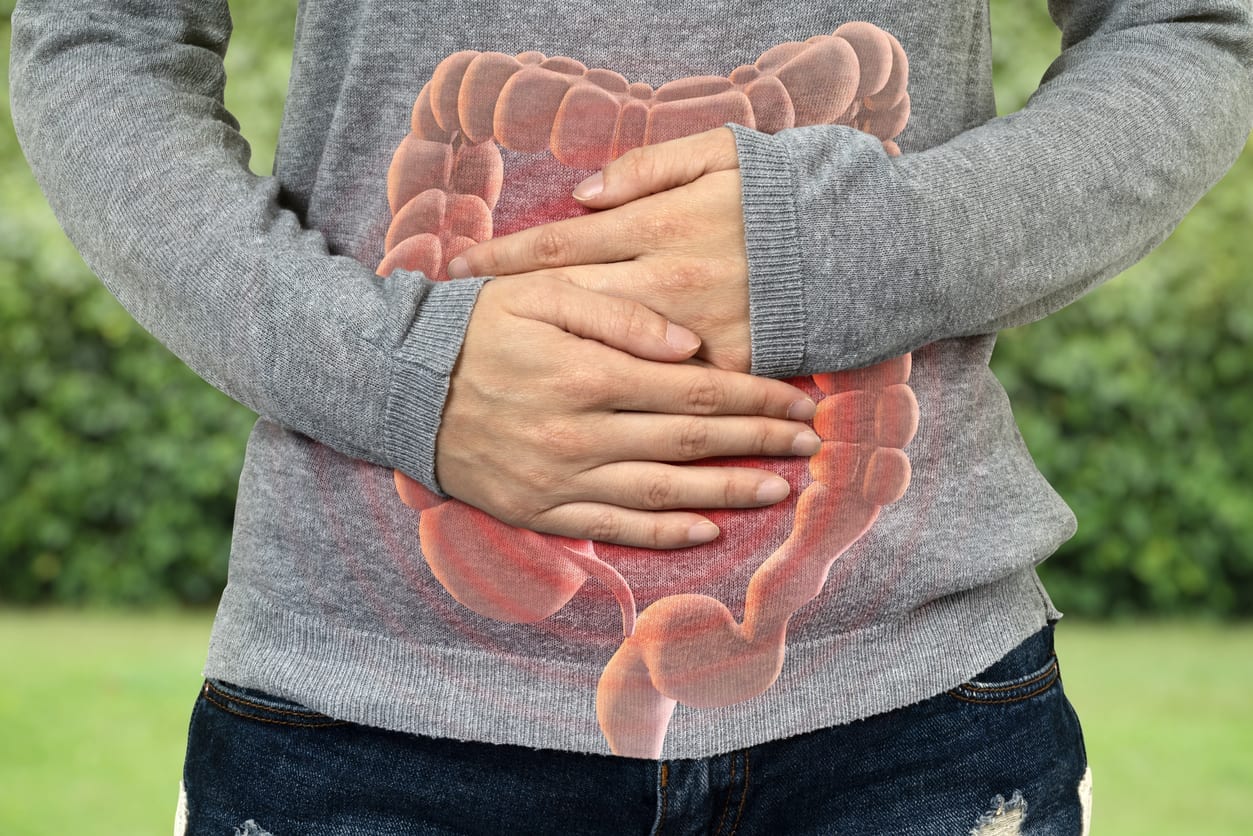Fall is in the air! When we think of this time of year, we often think of things like hearty soups, pumpkin pies, living in sweaters, and maybe spending a little less time in the gym. It’s a cozy time and one of our favorite seasons. But these small seasonal lifestyle shifts can add up and do a number on your gut health.
We are here to serve as a friendly reminder to keep an eye on your gut health as the weather turns cooler. Read on for some simple ways you can “love your gut” and keep it healthy all season long.
Why Gut Health Matters
A healthy gut is more important than you might think. In fact, the state of your gastrointestinal tract can impact much more than your digestive system. It can affect your immune health, heart health, and even your brain health (and you can read more about that here). Considering everything your GI tract does for you, it makes sense to show it some love. First, let’s quickly discuss how your gut health can affect these three areas.
Immune Health: Seventy percent of your immune system lives in the gut, so it’s no surprise that the gut plays an important role in protecting against harmful bacteria and viruses.1 Just as your skin protects you against foreign invaders on the outside, your gut lining protects you from these pathogens on the inside.
Heart Health: It’s true that the way to your heart is through your stomach. A number of studies have shown that certain probiotic strains may help lower blood cholesterol, especially in people with high cholesterol levels. One of these studies found that Lactobacillus probiotics can help reduce both total cholesterol and LDL cholesterol levels.2 Another study of 127 people with high cholesterol reported that taking a supplement with the beneficial bacteria L. reuteri for nine weeks significantly lowered total cholesterol by 9 percent and LDL cholesterol by 12 percent.3
Brain Health: Your brain and your gut are in constant communication with each other through millions of nerves—a system known as the gut-brain axis. Several studies show that the gut microbiome may affect brain health by helping to control the messages that are sent to the brain through these nerves.4
Top Three Gut Love Tips
Now that you know how important gut health is and how it can impact different areas in the body, let’s take a look at some simple ways you can show your gut some TLC.
Eat a diverse range of foods. Eating a wide variety of plant foods and soluble fiber is linked with a greater diversity of gut bacteria.5 Here’s why: different bacteria prefer different foods, so the more diverse the diet, the more diverse the bacteria in the gut. And when it comes to bacteria, the more diverse the merrier. So try and switch up your diet day to day, and incorporate new fiber-rich vegetables, fruits, and grains into your meals.
Make exercise a priority. Studies show that exercise has a number of benefits for your gut microbiota. It increases the number of beneficial microbial species and fosters greater microbial diversity.6 Strive to get in at least 30 minutes of physical activity daily to give your microbiome the extra support it may need.
Make probiotics part of your daily routine. Probiotics are another great way to inject a bit more bacteria in your diet. Research shows that taking a probiotic supplement can help support gut health and may prevent other digestive problems. 7 Just be sure that the supplement packaging indicates that the bacteria will be live at the expiration date, rather than simply live at the time the supplement is manufactured. Keep these supplements in a cool, dark, and dry location to promote the stability of the beneficial bacteria inside.
Gut health matters a lot! And there are easy ways you can help keep your microbiome healthy and balanced. Try adding one (or all three) of these microbiome-friendly tips to your routine and give your gut some extra care and attention this fall.
References
- Rooks M, Garrett W. Gut Microbiota, Metabolites and Host Immunity. National Library of Medicine. 2016; 16(6): 341-52. 10.1038/nri.2016.42
- Wu Y, Zhang Q, Ren Y, et al. Effect of Probiotic Lactobacillus on Lipid Profile: A Systematic Review and Meta-Analysis of Randomized, Controlled Trials. National Library of Medicine. 2017; 12(6):e0178868.
- Wang L, Guo MJ, Gao Q, et al. The Effects of Probiotics on Total Cholesterol: A Meta-Analysis of Randomized Controlled Trials. National Library of Medicine. 2018; 97(5):e9679.
- Forsythe P, Bienenstock J, Kunze W. Vagal Pathways for Microbiome-Brain-Gut Axis Communication. National Library of Medicine. 2014; 817:115-33.
- Holscher, H D. Dietary Fiber and Prebiotics and the Gastrointestinal Microbiota. Gut Microbes. 2017; 8(2): 172–184.
- Monda V, Villano I, Messina A, et al. Exercise Modifies the Gut Microbiota with Positive Health Effects. Oxidative Medicine and Cellular Longevity. 2017;
- Brown AC, Valiere A. Probiotics and Medical Nutrition Therapy. Nutrition and Clinical Care. 2004; 7(2):56-68.
This article is for informational purposes only. This article is not, nor is it intended to be, a substitute for professional medical advice, diagnosis, or treatment and should never be relied upon for specific medical advice.

Share this Post